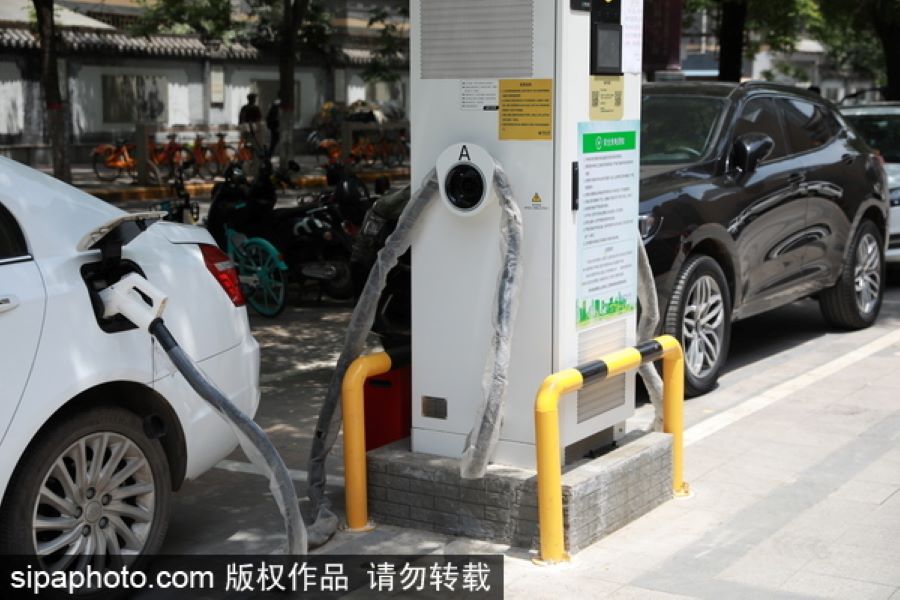Charging piles construction to accelerate across country
By Zheng Xin | China Daily | Updated: 2020-06-02 09:44

Mi Siyi, an analyst with BloombergNEF, believes the battery degradation concerns also affect consumers' experience and involvement in EV smart charging services.
Better coordination among the government, industry associations, automakers and charging service suppliers will better promote the development of the connectivity sector, Mi said.
The International Energy Agency forecasts that globally, there could be as many as 20 million public EV charging points installed by 2030.
She said private EV owners enjoy greater demand for charging services than public EV drivers. The promotion of rapid-charging technology will further reduce charging times, while the increase of EVs will also boost demand for charging services.
The promotion of EVs will only bear fruit if sufficient charging points are available to keep those vehicles rolling.
The unwillingness to share information between large-sized enterprises and small startups also retards the process of connecting charging stations and EV drivers.
"We all know that better connectivity will facilitate growth of the EV sector, but many charging companies are unwilling to share their data with other players," said Gao Haijun, deputy head of Star Charge.
Smaller-capacity charging companies more readily agree to data exchange, and it's not fair for one with 1 million kilowatt-hour annual charging capacity and hundreds of thousands of charging piles to share with a company just recently established, Gao said.
Gao suggested a national level platform to further facilitate the connectivity of charging units.
It's not fair to be both a player and a judge, he added.
Even when seamless, widespread connectivity is finally achieved, there would still be various platform choices, and it will be up to consumers on whom players survive in the market, Gao said.
"As the total number of EV charging piles increase, EV drivers' demand for charging services like information and battery maintenance will soar," said Lin Boqiang, head of the China Institute for Studies in Energy Policy at Xiamen University.
State Grid recently announced it would invest 2.7 billion yuan to set up 78,000 charging piles across the country against the backdrop of China's call for more investments in new infrastructure, including charging piles, ultra-high-voltage grids, intercity transit systems and 5G to stimulate new economic impetus to counter the impact of the COVID-19 pandemic.
Many other foreign oil and gas giants are also announcing plans to invest in the charging pile sector. Didi Chuxing and energy heavyweight BP announced in August that they had agreed to form a new joint venture to build EV charging infrastructure in China, the world's largest EV market.
Shell acquired two companies in the charging sector in the past two years, installed its first EV "pump" at a regular gas station in Tianjin. Volkswagen, FAW, JAC and Star Charge also established a JV in July.
Tesla plans to expand coverage of its V3 supercharging piles in the second half of this year, despite the impact of the COVID-19 pandemic. It will also set up 4,000 supercharging piles in China-including V3 and V2 supercharging piles-by the end of this year.
























